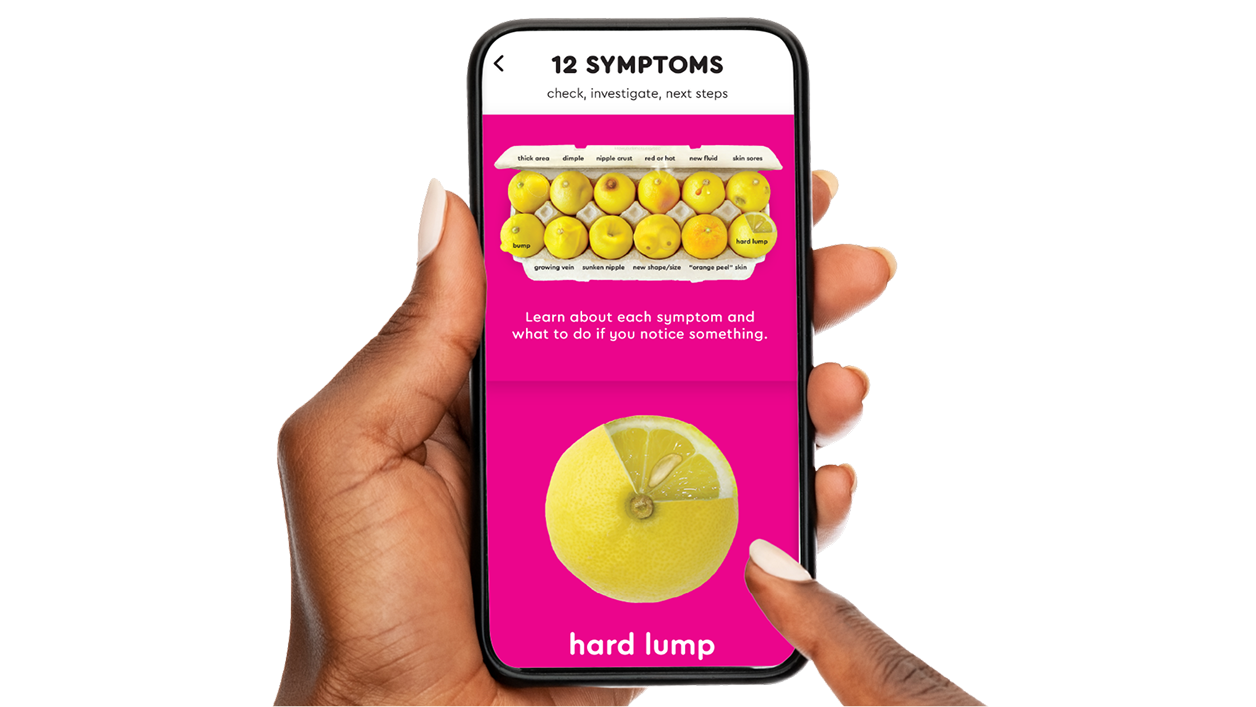Shop for Plans
Shop for your own coverage
- Medical
- Dental
- Other Supplemental
-
(Cancer Treatment, Hospital Indemnity, and more)
Plans through your employer
- Learn about the medical, dental, pharmacy, behavioral, and voluntary benefits your employer may offer.
- Explore coverage through work
Learn
- How to Buy Health Insurance
- Types of Dental Insurance
- Open Enrollment vs. Special Enrollment
- See all topics
Living or working abroad?
- Shop for international insurance plans
Shop for Plans
Shop for Plans
Breast Cancer Causes and Risk Factors
Learn about what causes breast cancer, common risk factors, and how to reduce your risk.
What causes breast cancer?
Breast cancer occurs when breast cells mutate and become cancerous cells. These cells then divide and multiply, turning into tumors. But in terms of what causes those changes to happen, experts aren't sure.
While there isn't a specific, single cause of breast cancer, there are several factors that can increase your risk of getting breast cancer.

Breast Cancer Risk Factors for Women
Here are some factors—both in and outside of your control—that can increase your chances of getting breast cancer.
Genetic Factors
These are factors that are passed down and cannot be changed. If you are at an increased risk due to personal and family history, your provider may recommend genetic testing and counseling. A genetic counselor will evaluate your risk on a personal basis.
Age
Race and Ethnicity
Type of Breast Tissue
Certain Genetic Mutations
Menstruation and Pregnancy History
Family History
Environmental and Lifestyle Factors
These are factors that likely can be changed.
Hormonal Birth Control and Other Pills
Alcohol and Tobacco Use
Weight
Sedentary Lifestyle
Radiation Exposure
What are the breast cancer risk factors for men?
Men have a slightly different set of factors that can put them at a greater risk of developing breast cancer.
Older Age
Estrogen-related Medications
Family History
Gene Mutations
Klinefelter Syndrome
Overweight or Obese
How can I lower my risk of having breast cancer?
While there are many things outside of your control that put you at a higher risk, you can lower your chances of getting breast cancer. Here are a few lifestyle changes you can make:
- Drink little to no alcohol
- Maintain a healthy weight
- Exercise regularly
- Limit the use of hormone therapy, if possible
Preventive Breast Cancer Surgery
Those who have a very high risk of getting breast cancer may choose to have preventive surgery. This is referred to as either a bilateral mastectomy or bilateral prophylactic mastectomy. In this procedure, both breasts are removed (which includes most, but not all, breast tissue) to prevent breast cancer.
The following women may be candidates a risk-reducing bilateral mastectomy:
- Carriers of certain gene mutations (such as BRCA1, BRCA2, PALB2, CDH1, PTEN, or TP53)
- Those who have had more than one relative diagnosed with breast cancer, especially prior to age 50.
After the surgery, many women choose to have breast reconstruction. Learn more about breast cancer treatment options. Talk with your health care provider if you have concerns about your breast cancer risk.
Better Early Breast Cancer Detection with the Know Your Lemons App
Are you confident about performing self-breast exams? The Know Your Lemons app can improve your chances of finding breast cancer early. Features include:
- Self-exam audio guide, video, and report
- Custom screening plan
- Period tracker
- Mammogram scheduler


AskEllyn.ai: A Companion for Your Breast Cancer Journey
Whether you were just diagnosed, are going through treatment, or have a loved one with breast cancer, you deserve support. AskEllyn.ai is a free AI companion, available 24/7. Ask questions or simply receive comfort in this private and unique chat experience.
Are you a Cigna Healthcare member?
Access your benefits, discover mental and emotional support services, find in-network providers, manage your claims, and more.
Log in or activate your myCigna account to find your benefits
Discover more Cigna Healthcare member benefits
Not a Cigna Healthcare member? We're here to help.
Even if you're not a Cigna Healthcare member, there are many resources available to you to assist you on your breast cancer journey. Make sure to contact your insurance company to learn what cancer care benefits and services are available to you.
Tags
1American Cancer Society, Breast Cancer Facts & Figures: 2024-2025, https://www.cancer.org/content/dam/cancer-org/research/cancer-facts-and-statistics/breast-cancer-facts-and-figures/2024/breast-cancer-facts-and-figures-2024.pdf, accessed March 26, 2025.
2 American Cancer Society, Risk Factors for Breast Cancer in Men, https://www.cancer.org/cancer/types/breast-cancer-in-men/causes-risks-prevention/risk-factors.html, accessed March 26, 2025.
All Cigna Healthcare® products and services are provided exclusively by or through operating subsidiaries of Cigna Healthcare, including Cigna Health and Life Insurance Company, or their affiliates. The Cigna Healthcare name, logo, and other Cigna Healthcare marks are owned by The Cigna Group® Intellectual Property, Inc.
The content provided on this web site is not medical advice and is not a substitute for medical care provided by a physician.
AskEllyn
I want to...
Audiences
Manage Your Account
Cigna Healthcare Information
The Cigna Group Information
Disclaimer
Individual and family medical and dental insurance plans are insured by Cigna Health and Life Insurance Company (CHLIC), Cigna HealthCare of Arizona, Inc., Cigna HealthCare of Florida, Inc., Cigna HealthCare of Georgia, Inc., Cigna HealthCare of Illinois, Inc., Cigna HealthCare of North Carolina, Inc., and Cigna HealthCare of Texas, Inc. Group health insurance and health benefit plans are insured or administered by CHLIC, Connecticut General Life Insurance Company (CGLIC), or their affiliates (see a listing of the legal entities that insure or administer group HMO, dental HMO, and other products or services in your state). Accidental Injury, Critical Illness, and Hospital Care plans or insurance policies are distributed exclusively by or through operating subsidiaries of The Cigna Group, are administered by Cigna Health and Life Insurance Company, and are insured by either (i) Cigna Health and Life Insurance Company (Bloomfield, CT). The Cigna Healthcare name, logo, and other Cigna Healthcare marks are owned by The Cigna Group Intellectual Property, Inc.
All insurance policies and group benefit plans contain exclusions and limitations. For availability, costs and complete details of coverage, contact a licensed agent or Cigna Healthcare sales representative. This website is not intended for residents of New Mexico.
La aseguradora publica el formulario traducido para fines informativos y la versión en inglés prevalece para fines de solicitud e interpretación.
The insurer is issuing the translated form on an informational basis and the English version is controlling for the purposes of application and interpretation.